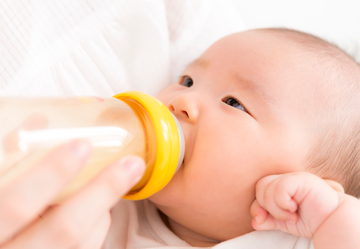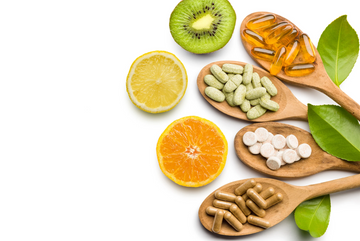How a Mother’s Diet Shapes Breast Milk: Nourishing Your Baby with Every Bite
Breastfeeding is a remarkable process, and while your body naturally prioritizes providing essential nutrients to your baby, your diet plays a key role in shaping the composition of your breast milk. The foods you eat influence everything from fat and protein content to vitamin and mineral levels, ensuring your baby gets the best possible nourishment. Let’s explore how maternal nutrition impacts breast milk and how simple dietary choices can empower you to support your baby’s health.
Macronutrients: Fueling Growth Through Your Diet
Breast milk is rich in proteins, fats, and carbohydrates, all of which contribute to your baby’s development. While your body regulates these nutrients, your diet can enhance their quality and balance:
Proteins – Eating a variety of protein sources, such as lean meats, eggs, beans, and dairy, helps maintain a strong supply of essential amino acids that support muscle and bone growth.
Fats – The types of fats in breast milk, including omega-3s and omega-6s, are directly influenced by your diet. Consuming healthy fats from sources like salmon, flaxseeds, and nuts can enhance brain and eye development in your baby.
Carbohydrates – Lactose is the primary carbohydrate in breast milk, providing energy and supporting gut health. While lactose levels remain stable, eating fibre-rich foods like whole grains and vegetables can promote overall digestive health.
Micronutrients: Essential Vitamins and Minerals from Your Plate
Your diet directly affects the levels of certain vitamins and minerals in breast milk, ensuring your baby gets the nutrients they need:
Vitamin D – Supports bone health and immune function. Since breast milk naturally contains low levels, getting enough sunlight and consuming vitamin D-rich foods (like fortified dairy and fatty fish) is beneficial.
Iron – Essential for brain development and preventing anemia. Eating iron-rich foods like spinach, lentils, and lean meats helps maintain adequate levels.
Calcium – Supports strong bones and teeth. Dairy products, leafy greens, and fortified plant-based alternatives are great sources.
Iodine – Important for thyroid function and cognitive development. Seafood, dairy, and iodized salt help maintain sufficient levels.
Hydration: The Key to Milk Production
Breast milk is about 87% water, so staying hydrated is crucial for maintaining supply. Drinking plenty of fluids—water, herbal teas, and nutrient-rich broths—helps support milk production and overall well-being.
Flavours and Exposure to New Tastes
Did you know that your diet can subtly influence the flavor of your breast milk? Studies suggest that babies exposed to a variety of flavours through breast milk may develop a preference for diverse foods later in life. Eating a colorful, varied diet can introduce your baby to different tastes, making future food transitions smoother.
A Balanced Approach to Nutrition
While maternal diet plays a role in breast milk composition, your body is incredibly efficient at ensuring your baby gets the nutrients they need. Instead of stressing over every meal, focus on balance, variety, and nourishment—choosing whole, nutrient-dense foods that support both your health and your baby’s development.
Sources:
Favara, G., Maugeri, A., Barchitta, M., Lanza, E., Magnano San Lio, R., & Agodi, A. (2024, December 27). Maternal lifestyle factors affecting breast milk composition and Infant Health: A Systematic Review. MDPI. https://www.mdpi.com/2072-
Lynch, M. (2025, April 3). The impact of Diet on breast milk: What new mothers should know. FoodDrinkTalk. https://fooddrinktalk.com/
Petersohn, I., Hellinga, A. H., Lee, L. van, Keukens, N., Bont, L., Hettinga, K. A., Feskens, E. J. M., & Brouwer-Brolsma, E. M. (2025, July 28). Maternal diet and human milk composition: An updated systematic review. Frontiers. https://www.frontiersin.org/journals/nutrition/articles/10.3389/fnut.2023.1320560/full














